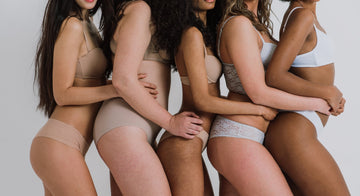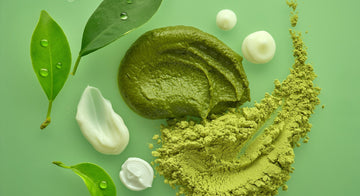Body Positivity: Loving your body is a revolutionary act.

We live in a society where image has taken on a dominant role. The media, advertising, and social networks expose us daily to an infinite quantity of images showing seemingly perfect bodies , without flaws and with dazzling smiles. These models, often digitally retouched or enhanced by cosmetic surgery, contribute to creating unattainable aesthetic standards, which generate dissatisfaction, feelings of inadequacy, and constant comparison. But what happens when we look in the mirror and don't recognize ourselves in those canons? This is where the body positivity movement originates.
What is Body Positivity?
Body positivity is a social and cultural movement born to challenge and deconstruct the collective obsession with physical perfection . It promotes the acceptance and respect of every body, regardless of size, shape, ethnicity, age, disability, gender identity, or any other physical characteristic. It arises from the need to offer an alternative, more inclusive and realistic narrative that values the diversity of human bodies.
It's not just about "liking yourself" in the mirror, but about recognizing that every body has the right to exist without being judged, discriminated against, or compared to others. Body positivity is also a political and social battle: it challenges ingrained prejudices, economic models that thrive on insecurity, and paves the way for a broader and more representative idea of beauty.
It's not just about appearance.
Being body positive doesn't mean ignoring health or promoting harmful behaviors . On the contrary, it's an invitation to care for oneself in a kind and respectful way, without self-punishment or adopting extreme practices to pursue an ideal imposed by others. It means shifting focus from outward appearance to overall well-being: physical, emotional, and mental .
This approach also implies a change in perspective: stop associating a person's value with their appearance and start recognizing much deeper qualities.
The benefits of acceptance
Accepting one's body, including its changes, imperfections, and limitations, can radically transform the way we live. Among the main benefits we can find:
- Psychological well-being : reduction of anxiety, stress, and guilt, with an increase in self-esteem and self-efficacy.
- Healthier relationships : by learning to accept oneself, one is also more predisposed to relationships based on respect and authenticity, free from superficial judgments.
- More sustainable health : deeper and more lasting motivations for taking care of your body, based on self-love rather than fear or shame.
How to Cultivate Body Positivity
In a world that continues to send us contradictory messages, body positivity must be cultivated as a daily act of awareness. Here are some ways to do it:
-
Follow profiles that inspire truth and authenticity.
On social media, choose to give visibility to those who promote inclusive and genuine messages. Surrounding yourself with spontaneous and "rich" images and words helps to build a thought process far from clichés and empty, circumstantial words, the result of the simplistic drift that sees the world only in black and white. We are people rich in everything and its opposite, we are not stereotypes, but emotional beings with a healthy chaos within. We are all like this, and this unites us. This does not deny our consistency, but affirms our natural complexity.
-
Speak kindly to yourself.
The way we speak to ourselves has a profound impact on our self-esteem. Replace overly harsh self-criticism with words of encouragement. We are our first companions and supporters; loving and respecting ourselves, confiding in ourselves even in our intimacy, allows us to recognize ourselves as "imperfect" and real, lovable for our imperfections and our vulnerabilities.
-
Reject toxic comments.
Learn to recognize and set boundaries around phrases or attitudes that judge bodies, yours or others'. Words only carry weight when we give them that weight. If we live by recognizing ourselves only in others, imagining those around us as mirrors reflecting our true image, we make the biggest mistake. Always remember that every mirror reflects its own way of reflecting, not the nature of the reflected image; therefore, it almost always speaks of itself and what it perceives, not of who you truly are.
-
Get informed and reflect.
Discovering the cultural roots of body shaming and fatphobia, for example, helps to deconstruct the mechanisms that support them and to become an active part of change. Each of us is a healthy bearer of culture and therefore of images of the world; with our ideas we can infect, save, move, bend, revolutionize or confirm society, because exchange generates influences.
-
Embrace diversity
Remember that beauty is neither singular nor static: every body has its own story, its own strength, its own value. If difference is frightening, it's because we've "learned" it somewhere. Let's re-educate ourselves to explore diversity. The perception of "same is beautiful" puts us in the uncomfortable bubble of the comfort zone , where the canon is sovereign and anything that deviates from it is a danger. Personal tastes make us unique, weakening the concept of canonical beauty to which society gives a specific weight with which to compare ourselves.
Conclusion
Loving your body in a culture that constantly pushes you to change it is an act of resistance . It's a revolutionary gesture that dismantles oppressive norms and restores dignity to the plurality of bodies. Body positivity isn't just a hashtag, but a philosophy that invites us to live with greater freedom, awareness, and humanity. Every body is valid and deserves respect. And this truth should never be questioned.




